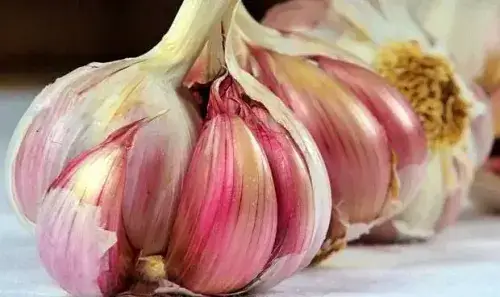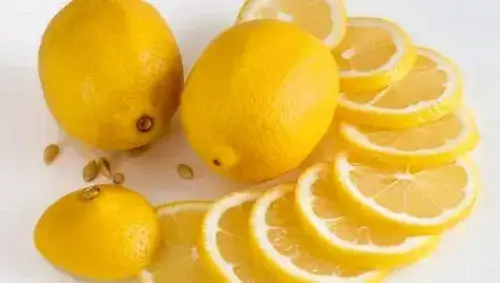Liver Health. If you’ve indulged a bit too much over the weekend, it’s time to take care of your liver, which bears the brunt of the stress from the food and drinks you consume. The liver is a crucial barrier that protects you from the dangers of overall body intoxication.
The liver is located beneath the diaphragm in the upper abdominal cavity, predominantly in the right upper quadrant but also partially in the left upper quadrant.
Liver Health and Functions.
The liver cleanses the blood of harmful substances, breaking down alcohol, medications, and other toxic compounds. It retains certain metals such as mercury, copper, and lead.
When these metals accumulate, they can harm the liver. Therefore, it’s important to avoid car exhaust fumes, which contain mercury vapor and lead oxides.
The liver can synthesize other amino acids from those present in the blood or convert them into fats and carbohydrates.
However, some amino acids, known as essential amino acids, cannot be synthesized by the liver and must be regularly obtained from food.
The liver produces bile, breaks down dead red blood cells, and uses their hemoglobin for bile formation.
It converts toxic ammonia-containing salts from protein breakdown into urea, which is then excreted by the kidneys.
The liver stores glycogen as a sugar reserve. When there is too much glucose in the blood, the liver converts it to glycogen for storage. When glucose levels drop, glycogen is converted back to glucose.
The liver participates in the synthesis of important vitamins, such as B12, as well as cholesterol and other substances essential for the body.
Because it can store a significant amount of blood, the liver is known as a blood reservoir. It’s important to protect this vital organ.
Why Is Liver Health Important?
One of the liver’s primary functions is detoxification, which involves neutralizing harmful substances ingested through food.
Additionally, the liver is a key “factory” for bile production. Bile emulsifies fats, facilitating their absorption and preventing digestive issues. This emulsification process also positively stimulates intestinal activity, protecting the pancreas.
When the Liver Functions Poorly.
When liver function deteriorates, detoxification is impaired, leading to potential intoxication of the body.
Bile secretion may decrease, causing digestive disturbances and pancreas-related problems.
Consuming fried, smoked, salty, and spicy foods, often staples of festive tables, reduces bile production and flow.
Therefore, after such indulgences, it’s wise to adopt a healthy diet to restore proper digestion. I won’t even mention alcohol — it’s no friend to the liver.
Foods Beneficial for Liver Health.
Here are some foods recommended for daily consumption that are particularly beneficial for liver health.
Personally, I consume these regularly in winter.
Admittedly, I use garlic less often due to its distinctive “aroma”—I think you know what I mean!
Pumpkin, Pumpkin Seeds, and Pumpkin Seed Oil.

These products are rich in valuable phospholipids, minerals, and vitamins (especially A, E, and B group vitamins) essential for the whole body.
They also contain flavonoids, which can restore liver structure while providing a tangible choleretic effect.
Choleretics are substances that increase bile secretion from the liver and promote the excretion of solid materials. Pumpkin seed oil and seeds also help reduce inflammation.
Green Tea.
Certain types are very rich in antioxidants, improving overall health, accelerating metabolism, removing free radicals, and helping the liver regenerate.
Green tea offers more health benefits than black tea, as it undergoes less processing.
Green tea helps remove toxins, salts, and harmful substances from the body, cleaning the stomach, intestines, kidneys, and even pores, which results in improved skin tone and condition.
This drink is a good preventive measure against cancer, psoriasis, bladder disease, and cardiovascular issues, also positively affecting the liver.
Garlic.
Garlic is rich in antioxidants and enhances bile secretion, helping to eliminate toxins from the liver.
It improves digestive tract function. Treating gastrointestinal issues with garlic is nothing new. Daily consumption of a moderate amount of garlic is recommended to improve digestion and prevent digestive problems.
The compounds found in garlic soothe intestinal activity, reduce bloating, alleviate mucosal irritation, and stabilize the digestive process.
Viburnum (Kalina)
In China, this berry is considered one of the most beneficial for liver health due to its bitterness. It’s best harvested before the frost, although it retains its health properties even afterward.
Viburnum is rich in iron, vitamin C, tannins, and various organic acids. Its seeds are heart-shaped, symbolically indicating its benefit for heart health and its ability to help with high blood pressure.
The seeds contain 21% valuable oils, including oleic and linoleic acids (commonly known as Omega 6 and 9).
Lemons.
Lemons protect liver cells from toxins and metabolic disorders. They help eliminate excess cholesterol and free radicals from the body while activating liver enzyme production.
Furthermore, lemons improve bile composition, combat acidity, and thin the blood.
Rich in vitamin C, lemons are among the best allies for the immune system, particularly during cold seasons. While they don’t prevent colds entirely, they can reduce symptom intensity and shorten recovery time.
Walnuts.
Regular consumption of walnuts helps protect the liver from ammonia’s harmful effects and improve liver tissue metabolism, thanks to their high content of polyunsaturated fatty acids and other beneficial components.
Walnuts are rich in minerals and vitamins, especially B vitamins. They also contain a small amount of vitamin E, primarily in the form of gamma-tocopherol, which is linked to cardiovascular health.
Notably, walnuts contain antioxidants such as hydroxybenzoic acids, hydroxycinnamic acids, and various polyphenols, making them nutritionally rich foods with significant health benefits.
Types of Liver Diseases.
Alcohol-Related Liver Disease.
Many people consume alcohol without developing liver diseases. However, those who drink excessively risk liver damage, including fatty liver disease and cirrhosis.
Fatty liver is the most common alcohol-related liver disorder, characterized by fat accumulation in liver cells, leading to cell enlargement (steatosis) and, in some cases, cell damage (steatohepatitis). This condition can cause irreversible liver damage—cirrhosis.
Similar changes are observed in people who do not consume excessive alcohol but are overweight, obese, or have diabetes. The liver enlarges, causing discomfort in the upper right abdomen.
Cholestasis.
This occurs when bile flow from the liver is restricted or blocked. Cholestasis can be caused by certain medications, genetic factors, or pregnancy.
It can also result from obstructions caused by tumors or gallstones lodged in the bile duct system.
Cirrhosis.
Prolonged fat accumulation and chronic inflammation in the liver lead to the gradual deposition of connective tissue, altering liver structure and progressively impairing its function.
Liver cells die and do not regenerate, leading to the loss of the liver’s ability to perform its key functions: producing enzymes, proteins, clotting factors, and bile, as well as detoxifying harmful substances.
When the liver’s filtering function fails, toxins reach the brain, causing encephalopathy, which can lead to coma.
Heavy alcohol consumption and viruses such as hepatitis are common causes of cirrhosis. Diabetes, immune system disorders, and genetic diseases can also trigger the condition.
Hepatitis.
This is a general term for any liver disorder associated with inflammation. There are many types of liver inflammation.
Excessive alcohol, drug use, or toxin exposure can sometimes cause hepatitis. Hepatitis can lead to liver failure, liver cancer, and other life-threatening conditions.
In conclusion, let’s protect our liver—it’s given to us for a lifetime!
Have a great day!






